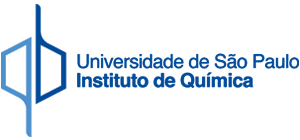Atualizado em 20/08/2024 por Comunicação IQUSP
The Program holds two annual entrance exams (February and July) for the Master's (MS), Doctorate (DR) and Direct Doctorate (DD) courses, open to candidates from Brazil and abroad in any area of training. Registration can be done online and no fee is charged. Proficiency in the English language is also not required for admission to the Program, which must only be proven within 18 months after enrollment in the case of the master's degree and within 30 months in the case of the doctorate by presenting a certificate issued by entities external to the program. Candidates from Brazil and abroad can also enter the program through the GRE exam (Graduate Record Examination). The profile of entrants observed over the years was maintained throughout the four-year period, with a preponderance of students coming from Brazilian public HEIs, both from São Paulo and the rest of the country. Although the upward trend observed in the previous four-year period was not maintained, the PPG continued to receive foreign students annually (see figure 1 of the Annex - Additional Data from the Postgraduate Program in Biochemistry).
According to the course (MS, DR and DD) there is a set of mandatory subjects defined as shown in figure 7 in the Additional Data of the Postgraduate Program in Biochemistry (see figure 2 of the Annex - Additional Data of the Postgraduate Program in Biochemistry). Postgraduate students follow defined course itineraries with different total credits established for the MS, DR and DD, which are obtained in mandatory subjects and of the student's free choice. The program's mandatory subjects are: Notions of Safety and Ethics in Research in Chemistry and Biochemistry, Gene Molecular Biology, Advanced Biochemistry, Advanced Topics in Biochemistry and Molecular Biology and Scientific Writing. The subjects Molecular Gene Biology and Advanced Biochemistry seek to give the student an in-depth view of central concepts in Biochemistry and Molecular Biology. These are subjects whose preparation receives special care from the Program Coordination, taught by teachers of recognized competence and which require substantial dedication of time and study from postgraduate students. This reflects the training philosophy of our Program, which believes that the training of scientists cannot compromise on a solid theoretical basis. The subject Notions of Safety and Ethics in Research in Chemistry and Biochemistry introduces students to personal and collective safety procedures, and notions of ethics and scientific conduct have recently been incorporated into this subject, thus filling an important gap in the training of our students. The subject Advanced Topics in Biochemistry and Molecular Biology seeks to bring recent advances in the area and also develop the critical spirit of the postgraduate student through presentations and discussions with Brazilian and foreign scientists. Finally, the Scientific Writing discipline consists of practical training in the preparation of scientific manuscripts, where full program advisors act as editors and reviewers in the evaluation of manuscripts prepared by students, in addition to discussing with students aspects related to scientific integrity, such as manufacturing /falsification of results and scientific plagiarism. The free-choice subjects cover varied themes and experimental techniques within the area of Biochemistry and Molecular Biology, some are even theoretical-practical. We have offered an average of 5 free-choice subjects per semester, taught by Program advisors. A significant fraction of the program's full supervisors teach classes in mandatory subjects and/or are fully responsible for freely chosen subjects, with these activities being taken into consideration as criteria for re-accreditation.
The development of the course with monitoring of credits and deadlines can be done by the student through the Janus system (online) via a personal page accessed with a password. Incoming students are welcomed by the Program coordinator, who presents the rules and organization of the postgraduate course. After a period of 18 months from initial enrollment in the master's course and 30 months in the doctorate, students must demonstrate proficiency in English and pass a qualification exam in Biochemistry and Molecular Biology, which enables them to continue in the course and finally defend their theses and dissertations. The maximum deadlines for defense are 48, 60 and 72 months in the MS, DR and DD courses, respectively. However, as noted in this report, the average effective completion times are lower than the maximum, having reached 37, 59 and 66 months for MS, DR and DD in the 2017-2020 four-year period, respectively. Titration times have remained stable over time, evidenced by the comparison with the average times for titration in the four-year period 2013-2016 (34, 58 and 70 months for MS, DR and DD, respectively). Dissertation and thesis defense panels are mostly made up of members external to the Program and the supervisor only participates as president, not having the right to vote. Furthermore, the Program has sought to offer at least one subject with foreign guests per year covering frontier topics in Biochemistry.

